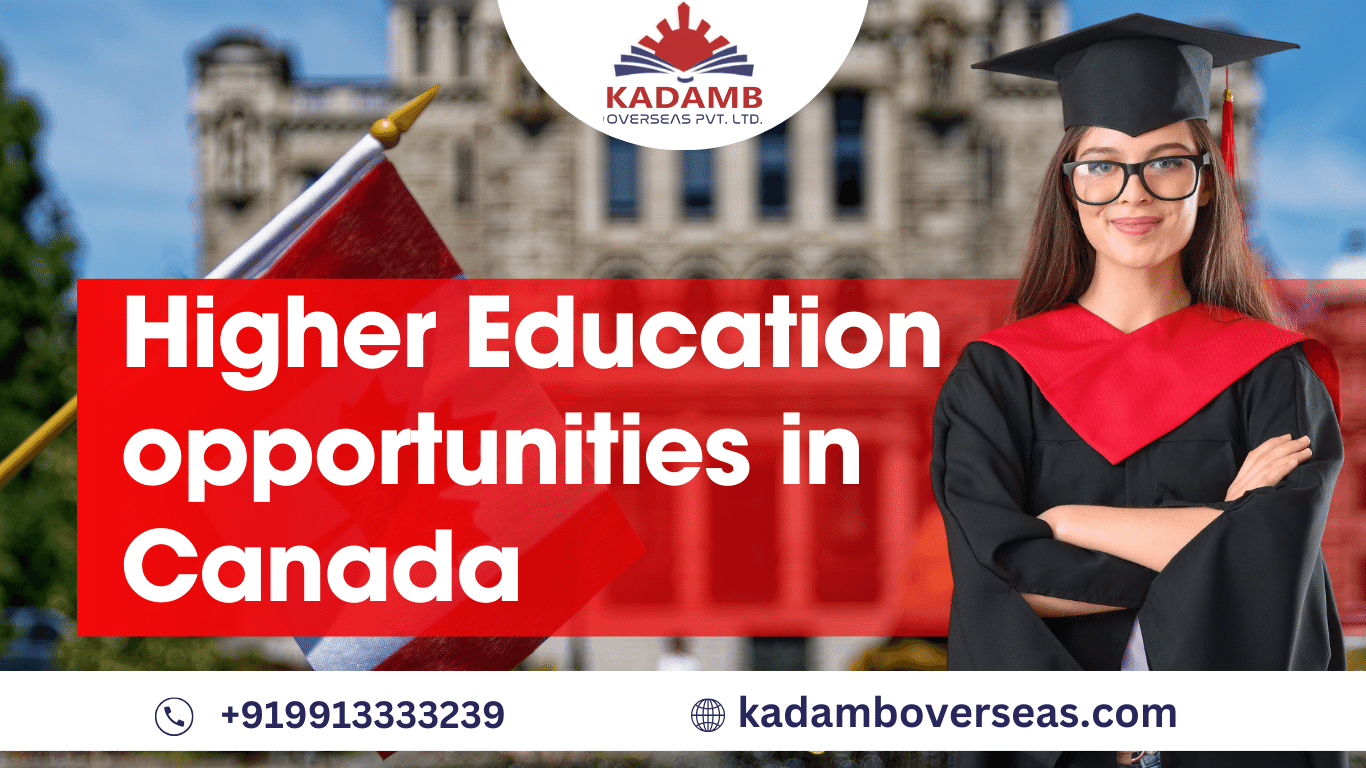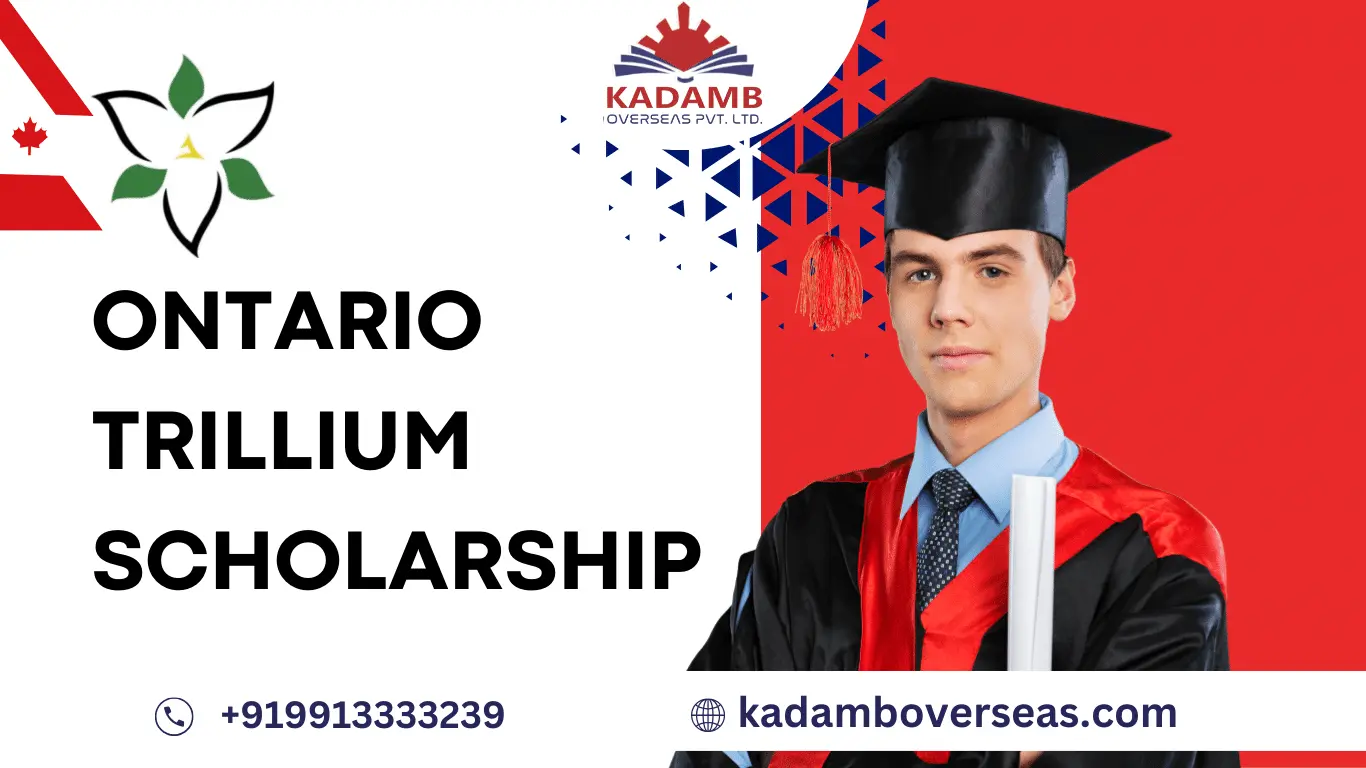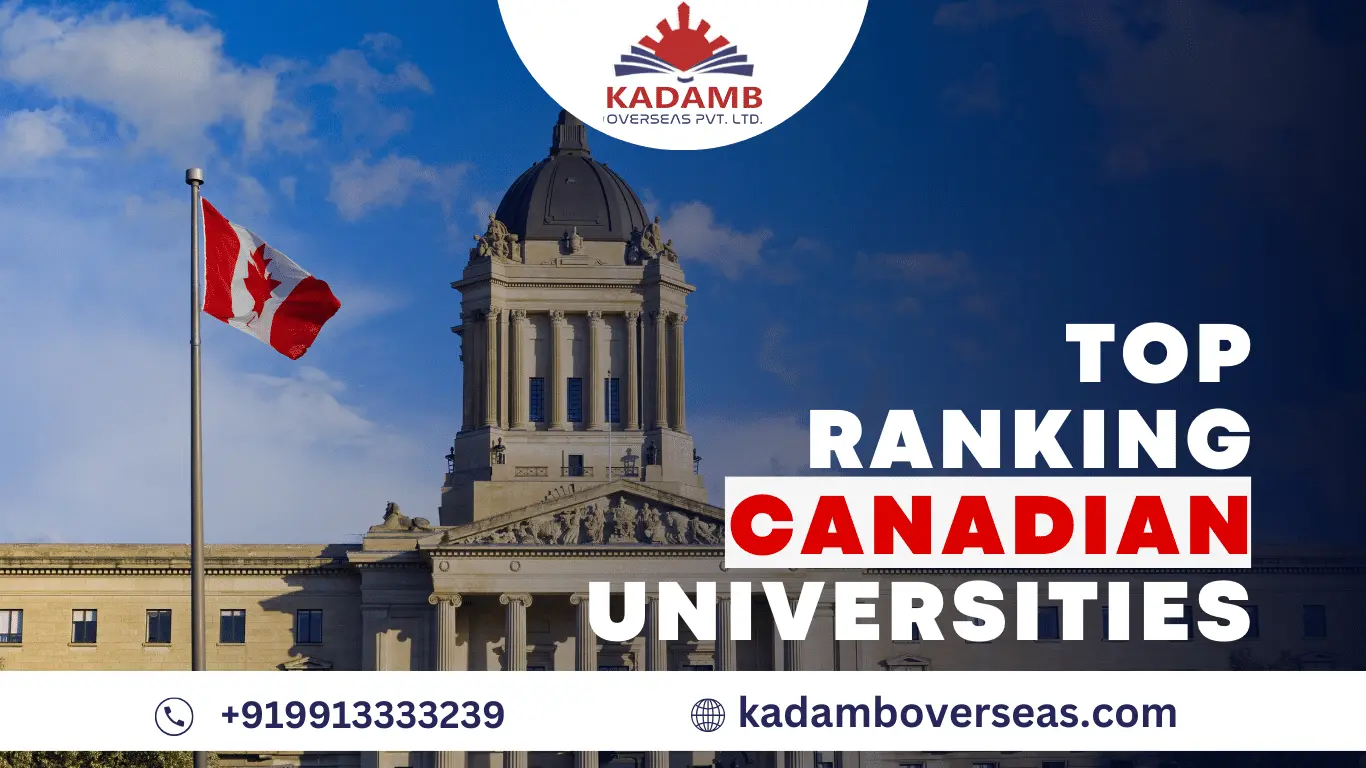Canada stands out as a beacon for international students, drawing them in with its unparalleled appeal, especially for those hailing from India. The key drivers of this popularity lie in the country’s commitment to providing high-quality education at affordable tuition fees, making it a top choice for study abroad enthusiasts.
In the year 2021, Canada played host to a staggering 700,500 international students, with a notable 215,720 originating from India. Amidst a diverse array of academic offerings, a predominant choice among these students is to pursue management and science courses at Canadian universities, reflecting the academic excellence the country is renowned for.
Beyond the academic landscape, Canada’s distinct culture serves as a magnetic force for international students. The country takes pride in its welcoming ethos, extending hospitality to citizens from all corners of the globe without discrimination. This inclusive environment has contributed to Canada securing positions for five of its cities, including Montreal at #9 and Toronto at #13, in the prestigious QS News Best Student Cities 2022 rankings, further underscoring its appeal as a top study abroad destination.
Comprehensive Guide to Pursuing Higher Education in Canada for Indian Students
A noteworthy aspect enhancing Canada’s allure is its straightforward Permanent Residency (PR) policies. These policies provide a seamless pathway for international students to envision a future in Canada, making it an even more attractive choice. The ease of transitioning from student life to potential residency adds a layer of practicality that resonates with students seeking a holistic and fulfilling study experience.
In essence, Canada emerges not only as an educational powerhouse but also as a cultural haven that embraces diversity, creating an environment where students from around the world can thrive and shape their future with confidence.
Best Universities in Canada: Your Gateway to Quality Education
When it comes to studying in Canada, students are spoiled for choice with a plethora of renowned universities. The QS News World University Ranking for 2022 highlighted the country’s academic prowess by featuring 26 Canadian universities among the top-ranking institutions globally.
Likewise, the 2022 THE World University Ranking showcased Canada’s commitment to education, with a notable 35 universities making it to the list. Impressively, seven of these institutions secured positions within the prestigious top 100.
This wealth of top-tier universities underscores Canada’s dedication to providing students with a world-class education, making it an ideal destination for those seeking academic excellence and a promising future.
| University | THE Ranking 2022 | Average Annual Fees (in INR) |
|---|---|---|
| University of Toronto | – | UG: 34.3 Lakhs, PG: 51.4 Lakhs |
| University of British Columbia | 37 | UG: 27.6 Lakhs, PG: 48.9 Lakhs |
| McGill University | 44 | UG & PG: 13.4-37.4 Lakhs |
| McMaster University | 80 | UG: 27.8 Lakhs |
| University of Montreal | 88 | UG: 7.8 Lakhs, PG: 5.3 Lakhs |
| University of Alberta | 125 | UG: 20.5 Lakhs, PG: 15.9 Lakhs |
| University of Ottawa | 162 | UG & PG: 15.1 Lakhs |
| University of Waterloo | 201 – 250 | UG: 30.6 Lakhs, PG: 13 Lakhs |
| Western University | 201 – 250 | UG: 25.1 Lakhs, PG: 17.4 Lakhs |
| University of Calgary | 201 – 250 | UG: 7.1 Lakhs |
| Simon Fraser University | 201-250 | UG: 8.9 Lakhs, PG: 23.7 Lakhs |
| Dalhousie University | 251-300 | UG & PG: 22.6-32.1 Lakhs |
| Queen’s University | 251-300 | UG: 20.8 Lakhs |
| University of Manitoba | 301-350 | UG: 13.7 Lakhs, PG: 28.1 Lakhs |
| University of Victoria | 301-350 | UG: 15.6 Lakhs, PG: 12.9 Lakhs |
Note: Some information, such as THE Ranking for the University of Toronto, is not available in the provided content.
Admission Process to Study in Canada
Completing a master’s program in Canada typically takes 1.5 to 2 years, while a bachelor’s degree spans 3 to 4 years. Popular fields of study include business, engineering & technology, medicine, arts, and various in-demand short courses.
The admission process and requirements for studying in Canada vary depending on the type of program, but there is a general criterion followed by most institutions.
Where to Apply:
- Universities and colleges in Quebec, Ontario, and Alberta accept applications through SRAM, ontariocolleges.ca, and Apply Alberta, respectively.
- Students applying to Canadian universities not associated with the mentioned portals can submit applications directly through the institute’s official website.
When to Apply:
- Most universities accept applications for the fall and winter semesters.
- Application periods for bachelor’s and master’s programs are usually December to March for the fall semester and September to November for the winter semester.
- Diploma programs accept applications throughout the year.
Admission Requirements to Study in Canada:
- Secondary school certificate (for bachelor’s programs)
- 3-4 year bachelor’s degree (for master’s programs)
- Certified translation of non-English transcripts
- Resume
- Letter of intent or Statement of Purpose
- Evidence of financial support
- Reference letters
- Proof of English proficiency
Admission Requirements for Popular Programs in Canada
| Program | Admission Requirements |
|---|---|
| MS in Computer Science in Canada | – 4-year bachelors in CS or related field with minimum 80%; |
| – At least 2 academic LORs; | |
| – GRE: Average Score 260 | |
| MBA in Canada | – 4-year bachelors with minimum 70%; |
| – GMAT: Average Score 600; | |
| – 2 years of relevant work experience; | |
| – At least 1 professional LOR | |
| Masters in Data Science in Canada | – 4-year bachelors in engineering, CS, statistics, economics, or related field with minimum 65%; |
| – GMAT: Average Score 600 or equivalent GRE; | |
| – 2 – 3 LORs | |
| LLM in Canada | – LLB or JD (Juris Doctor) with minimum 90%; |
| – LSAT Score: Average 160; | |
| – 2 – 3 LORs | |
| Masters in Mechanical Engineering | – 4-year bachelors degree in mechanical engineering with minimum 73%; |
| in Canada | – At least 1 academic LOR |
| BBA in Canada | – 70% marks in Class 12; |
| – Required Subjects: Maths and English | |
| BSc Nursing in Canada | – 75% in Class 12; |
| – Required Subjects: Human Physiology, Life Science, Social Science, Humanities, Statistics; | |
| – 2 LORs: 1 academic & 1 professional; | |
| – Interview | |
| Masters in Business Analytics in | – 4-year bachelors degree with minimum 70%; |
| Canada | – Required courses: algebra, statistics, calculus; |
| – Experience in computer programming and data analytics; | |
| – GMAT: Average score 600 or equivalent GRE | |
| Masters in Management in Canada | – 4-year bachelors with minimum 70%; |
| – At least 2 academic LORs; | |
| – GMAT: Average score 600 or GRE: Average score: 320 | |
| Masters in Finance in Canada | – Bachelors in business, statistics, financial theory, or related field with minimum 70%; |
| – 2 years of relevant work experience; | |
| – 2 LORs: professional and academic |
Visa policy to Study in Canada
Canada’s student visa policy is known for its simplicity compared to other countries. It offers a transparent and accessible process with the following key details:
- Processing Time: The Canada visa application processing time for Indian students is 11 weeks.
- Validity: The visa is valid for the duration of the program and an additional 90 days.
- Fees: The processing fee for the visa application is 150 CAD.
Required documents for a study permit application include:
- Acceptance letter from a Designated Learning Institute (DSI).
- Valid passport.
- Two recent passport-size photographs.
- Proof of financial support, amounting to up to 11,000 CAD per annum.
- Statement of Purpose.
Recent changes in the Student Partnership Program (SPP) have expanded opportunities for students from target countries like China, India, Vietnam, and the Philippines. The introduction of SDS (Student Direct Stream) has streamlined financial documentation and reduced processing time.
Cost of Studying in Canada: When planning to study in a foreign country, students face pre-arrival and post-arrival costs. Pre-arrival costs include one-time expenses like university application fees, test registration fees, and visa application fees. The major portion of expenses comes from post-arrival costs, covering tuition fees and the cost of living.
Tuition Fees: The tuition fees vary based on the program type, study level, and university. Canada is generally considered more affordable than the USA and UK in terms of tuition charges. According to Educanada, here are estimated tuition fees for various programs in the country:
| Program | Average Annual Fees (in CAD) |
|---|---|
| Bachelors | 1,800 – 20,000 |
| Masters | 2,500 – 17,000 |
| PhD | 2,500 – 17,000 |
| Vocational | 2,000 – 18,000 |
| Language Courses | 3,500 – 4,100 |
Program Average Annual Fees (in CAD) Average Annual Salary (in CAD)
| Program | Average Annual Fees (in CAD) | Average Annual Salary (in CAD) |
|---|---|---|
| MS in Computer Science | 65,000 | 146,000 |
| MBA | 60,000 | 199,000 |
| MS in Data Science | 23,000 | 67,000 |
| LLM | 20,000 | 100,000 |
| Masters in Mechanical Engineering | 40,000 | 95,000 |
| BBA | 80,000 | 84,000 |
| BSc Nursing | 45,000 | 142,000 |
| Masters in Business Analytics | 35,000 | 106,000 |
| Masters in Management | 56,000 | 100,000 |
| Masters in Finance | 47,000 | 60,000 |
Cost of Living in Canada
| Housing Type | Monthly Cost (in CAD) |
|---|---|
| Rented Room | 400 – 800 |
| Apartment (small cities) | 900 – 2,000 |
| Apartment (large cities) | 900 – 3,000 |
| City | Monthly Cost of Living (in CAD) |
|---|---|
| Vancouver | 2350 |
| Winnipeg | 1770 |
| Lethbridge | 1680 |
| Kingston | 1385 |
| Montreal | 1970 |
| Toronto | 2245 |
Study in Canada with Scholarships
| Scholarship | Level of Study | Amount |
|---|---|---|
| Ontario Trillium Scholarship | Doctorate | 28,961 |
| Ontario Graduate Scholarship | Masters | 10,847 |
| India First-year Excellence Scholarship | Bachelors | 3,795 |
| BrokerFish International Students Scholarship | Masters | 1,000 |
| Aga Khan Foundation Scholarship | Masters | Variable |
| Alberta Graduate Excellence Scholarship | Masters | 8,312 |
Education Financing Options for Indian Students in Canada
Apart from the scholarships mentioned earlier, Indian students have the option to apply for education loans to pursue their studies in Canada. Some of the top providers include SBI, Punjab National Bank, Bank of Baroda, and Axis Bank. These financial institutions offer loans covering up to 85% of the course fees, with interest rates typically ranging between 10% and 15%. The basic eligibility criteria for an education loan in India include:
- A co-signer (must be an Indian citizen)
- Documents proving the relationship between the co-signer and the applicant
- Acceptance letter from a foreign institute
Work Opportunities and Permits in Canada
Upon completing their studies, Indian students can apply for a work permit to seek suitable employment opportunities and extend their stay in Canada. This also provides a pathway to Permanent Residency after acquiring a sufficient amount of work experience.
Various types of work permits available in Canada include:
- Post-Graduation Work Permit (PGWP): Exclusive to students from Designated Learning Institutes (DLI), this permit can be applied for within 180 days of receiving the final results. The processing time is approximately 85 days, and the validity depends on the program’s duration.
- Other Work Permits: If a student did not graduate from a DLI, they can apply for an Open Work Permit or an Employer-specific work permit. An Open Work Permit allows working for any employer in Canada, while an Employer-specific work permit requires an offer letter from a specific employer or organization.

Job Prospects in Canada
With a modest unemployment rate of 6.0% in 2020, Canada boasts a robust economy offering abundant job opportunities for international students. On average, individuals earn 120,000 CAD per annum. Entry-level salaries start at 30,200 CAD and can reach as high as 534,000 CAD.
| Sector | Average Annual Salary (in CAD) |
|---|---|
| Airline | 247,000 |
| Executive Management & Change | 135,000 |
| Financial Services | 122,000 |
| Legal Department | 106,000 |
| Legal & Paralegal | 105,000 |
| Finance Control & Strategy | 96,000 |
Permanent Residency (PR) Opportunities After Studying in Canada
Securing Permanent Residency (PR) and navigating the immigration process is a streamlined journey for those who earn a degree from a renowned Canadian university. Canada’s government offers various programs dedicated to facilitating the transition of international students into permanent residents. For recent graduates, the Post-Graduate Work Permit (PGWP) is a valuable option, allowing them to gain practical work experience in their chosen industry.
Here are some additional avenues for international students seeking Permanent Residency in Canada:
- Canadian Experience Class (CEC): Requires completion of 2 years of education and 1 year of work experience post-graduation.
- Quebec Experience Class: Proficiency in the French language is essential, and completion of a CEGEP program from a Quebec institution is a requirement.
- Provincial Nomination Program (PNP): Enrolling in this program can expedite the PR process.
Canada boasts a rich cultural tapestry, offering a vibrant social life worth exploring. The country’s diversity is reflected in its various ethnic groups, contributing to diverse culinary delights and exciting recreational activities. The chance to encounter people from one’s own country or community adds to the sense of belonging.
In addition to its cultural richness, Canada stands out as a technological hub with numerous opportunities in the field. The industrial landscape places a strong emphasis on technology and innovation, making it an ideal destination for those with a passion for creative thinking to explore their careers.
Connect with our country experts at Kadamab overseas education consultants to kickstart your journey toward studying abroad contact us now





